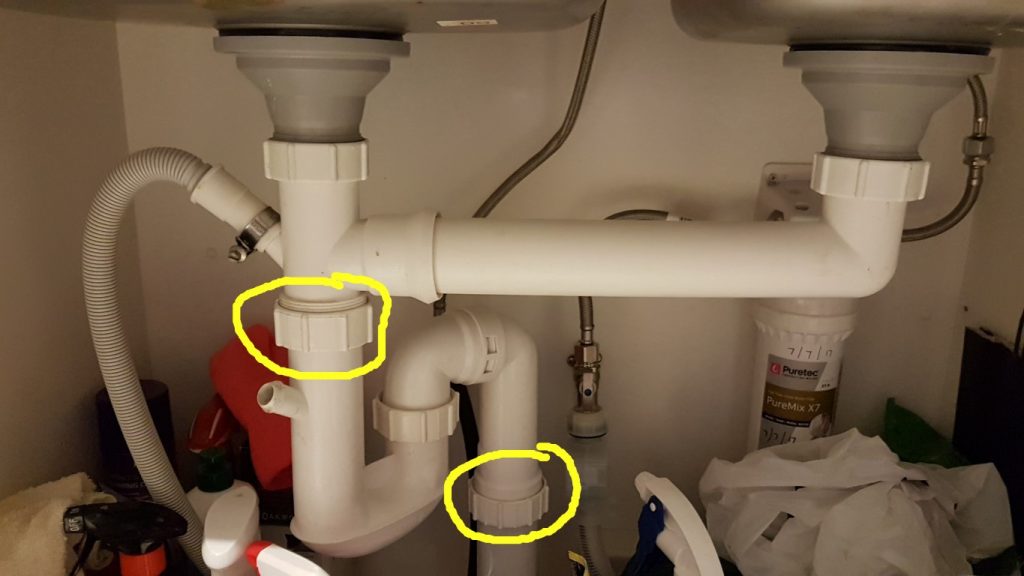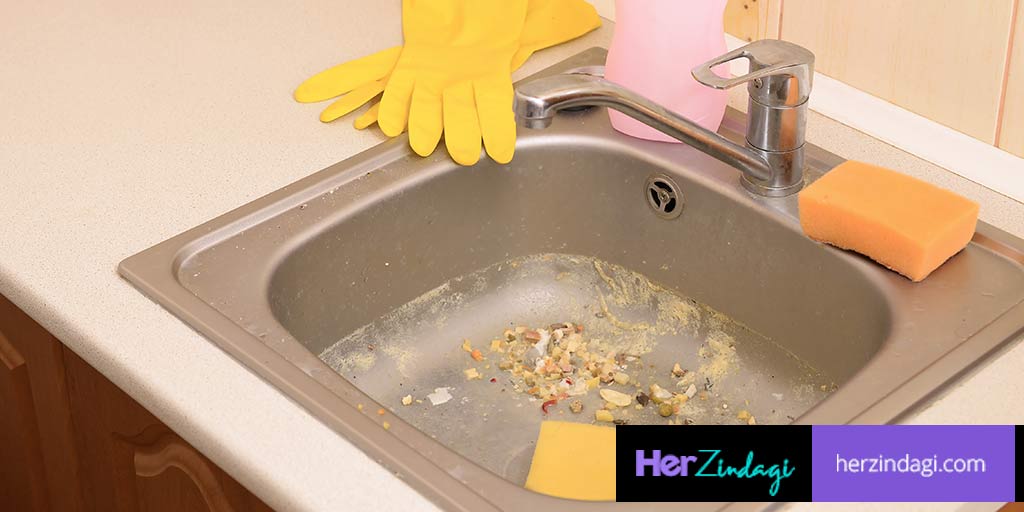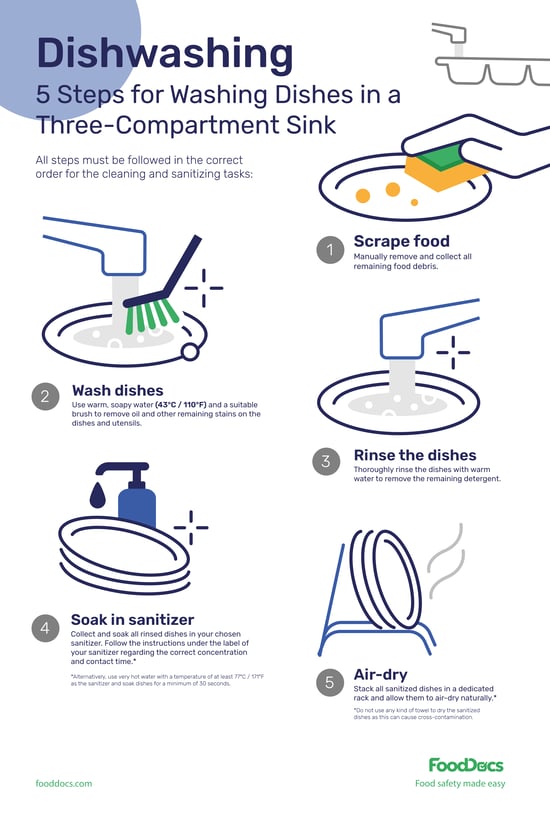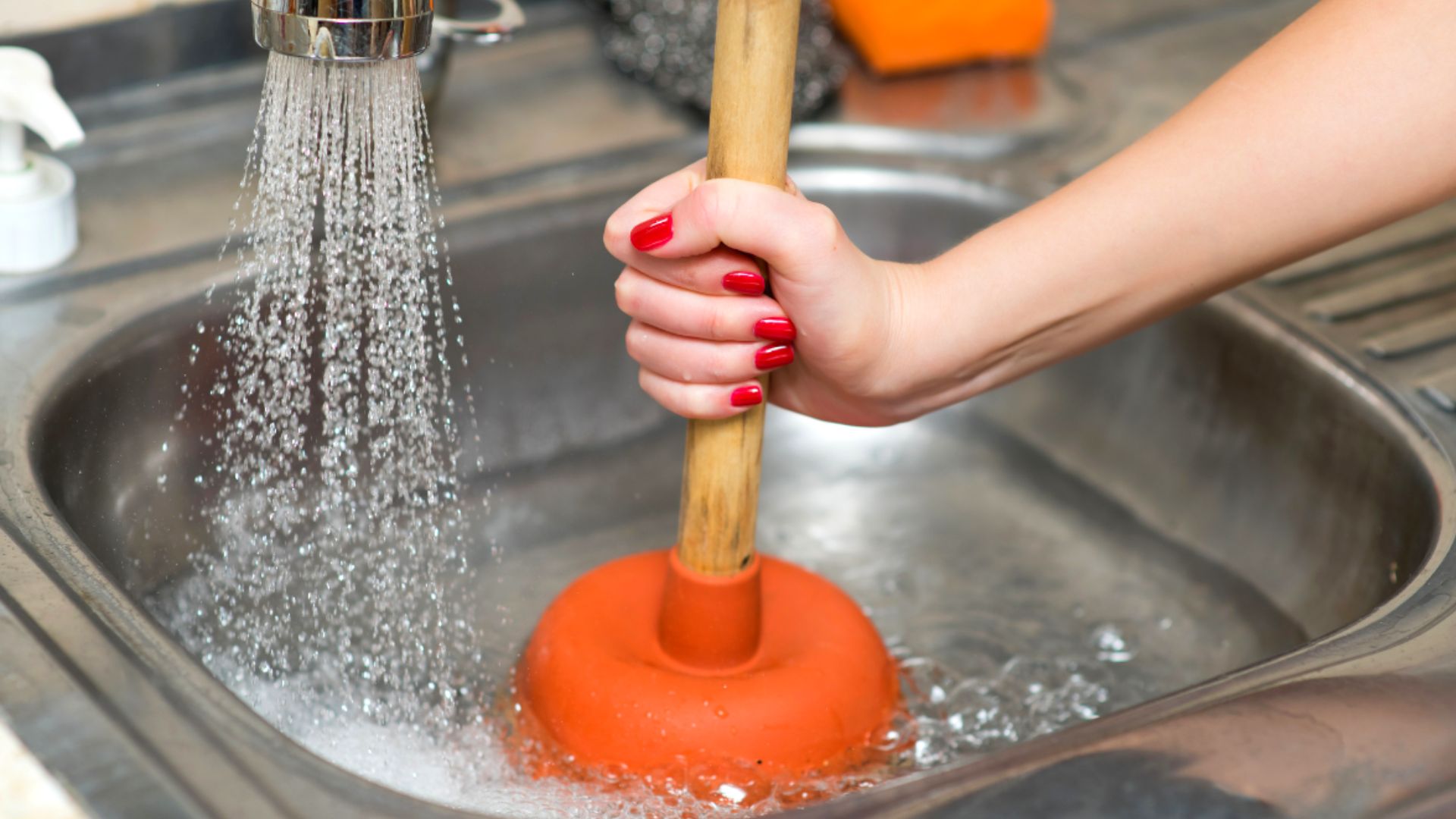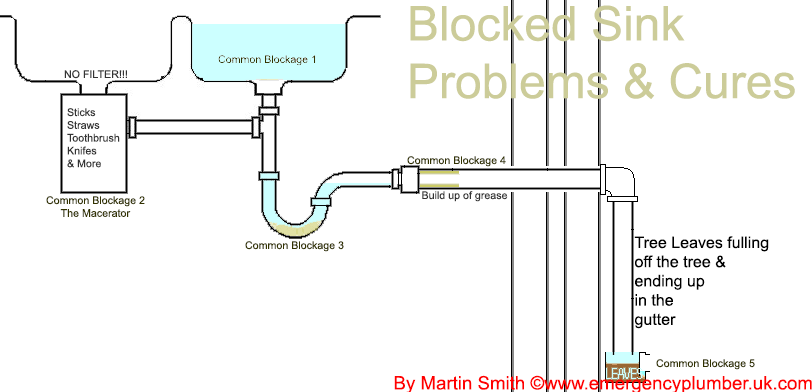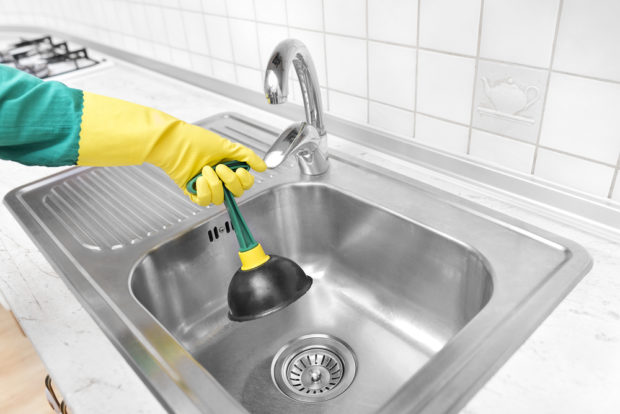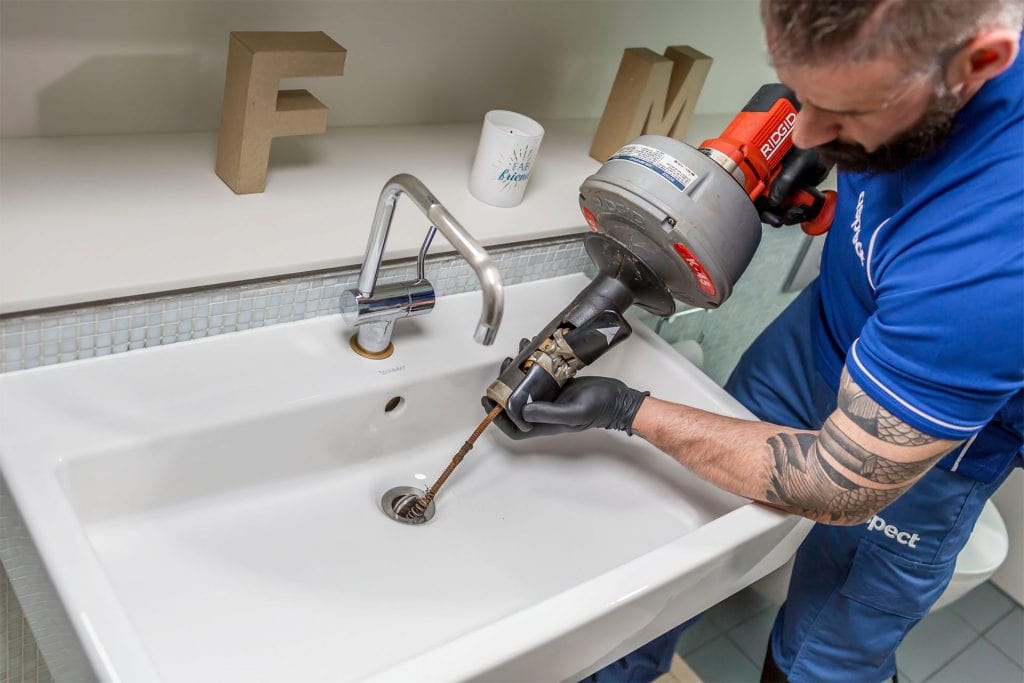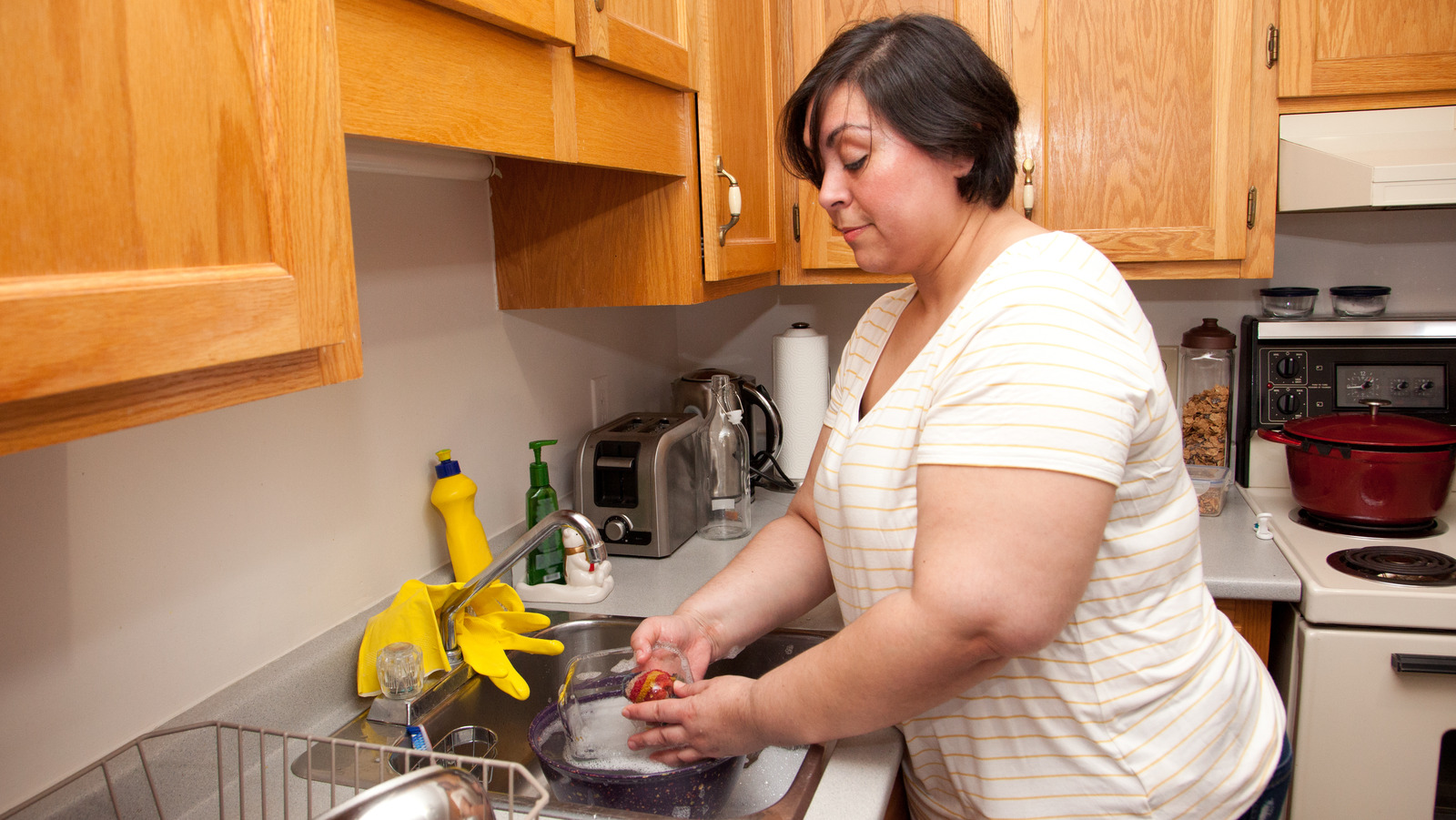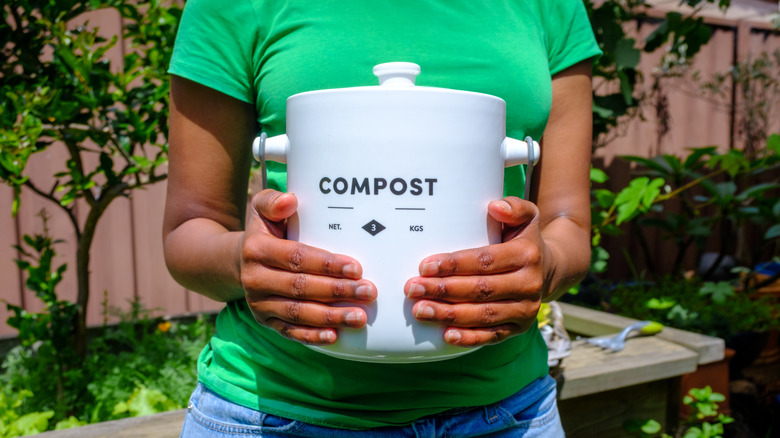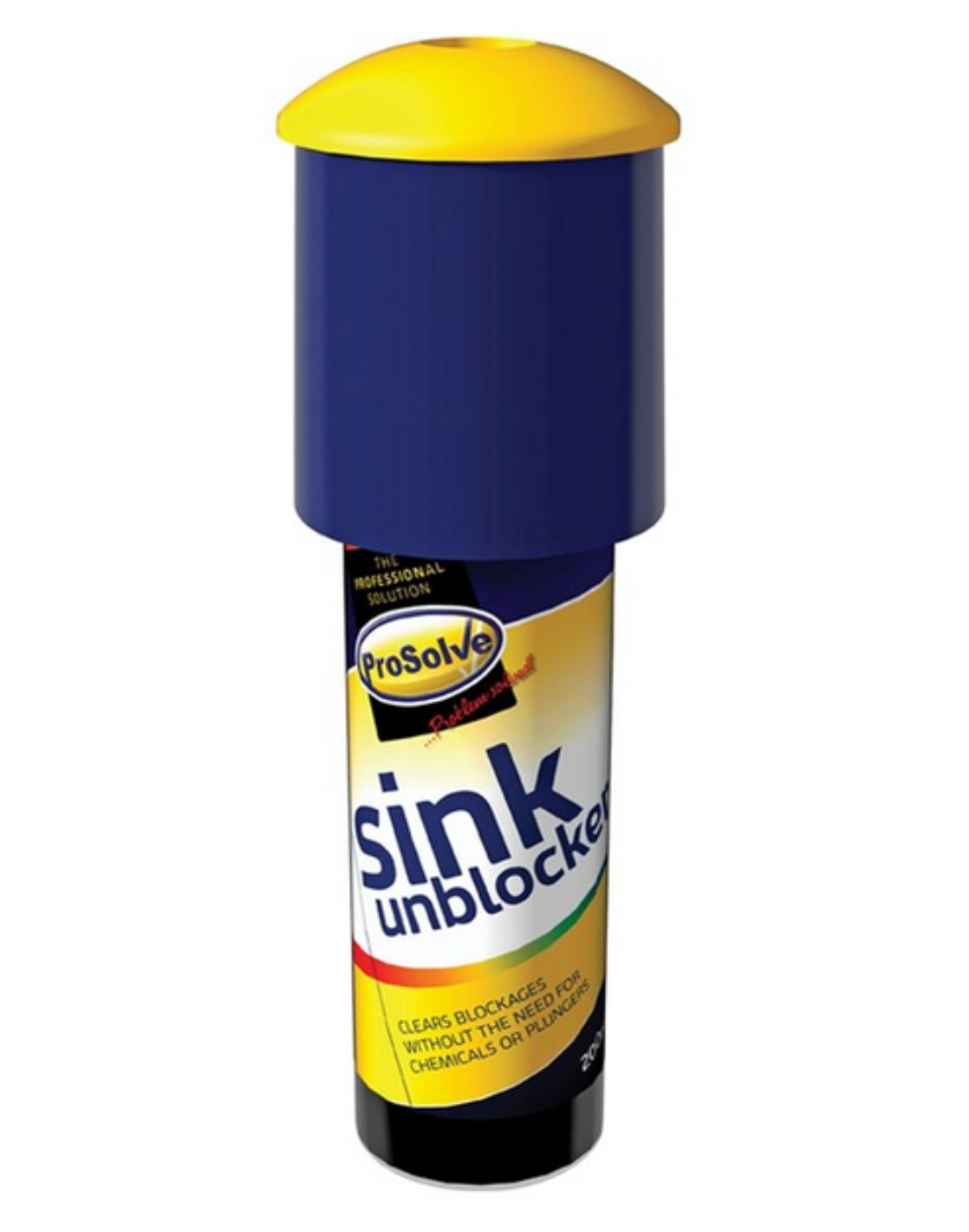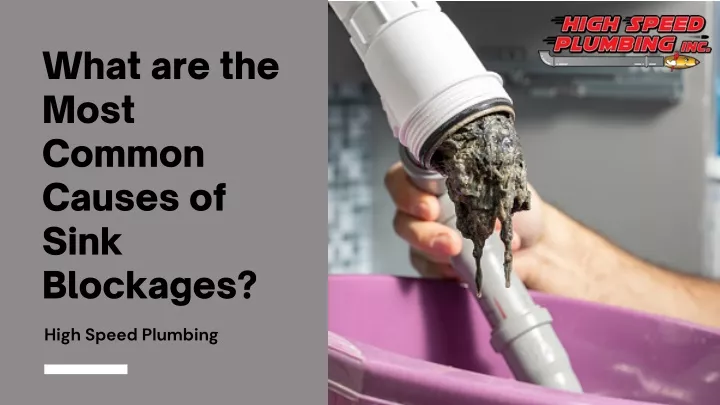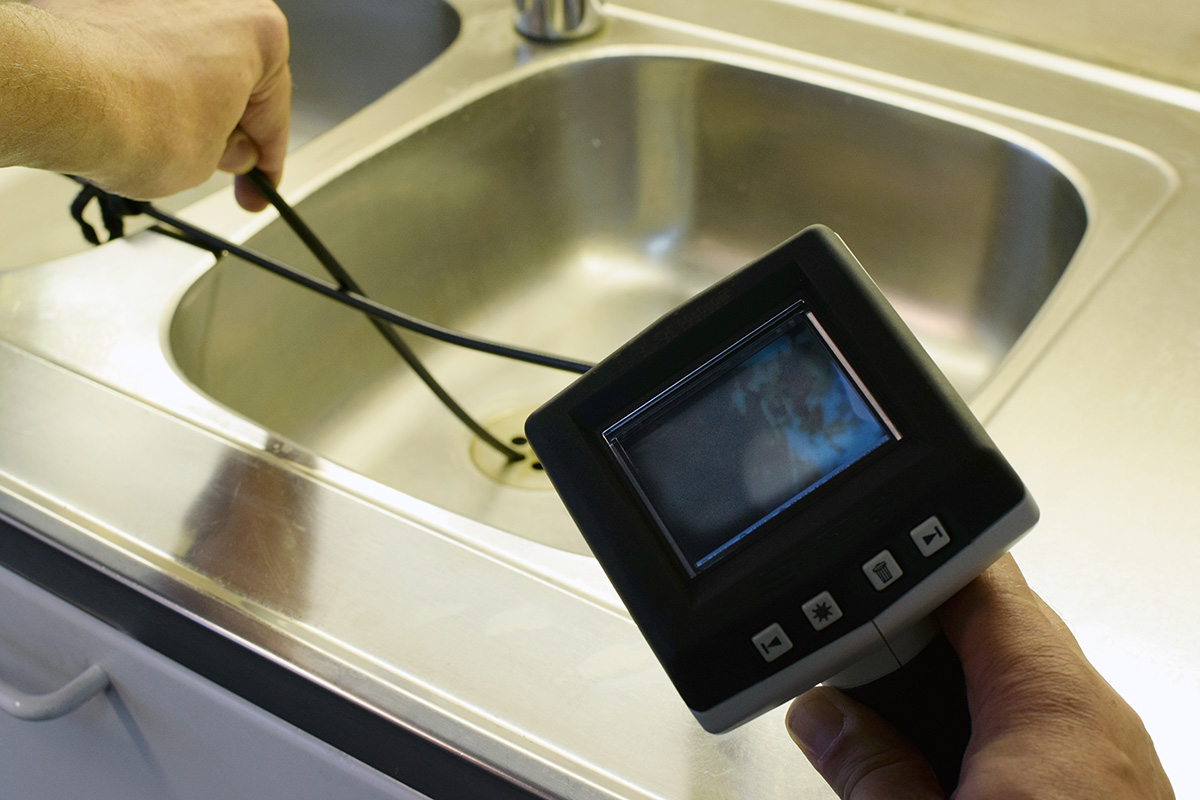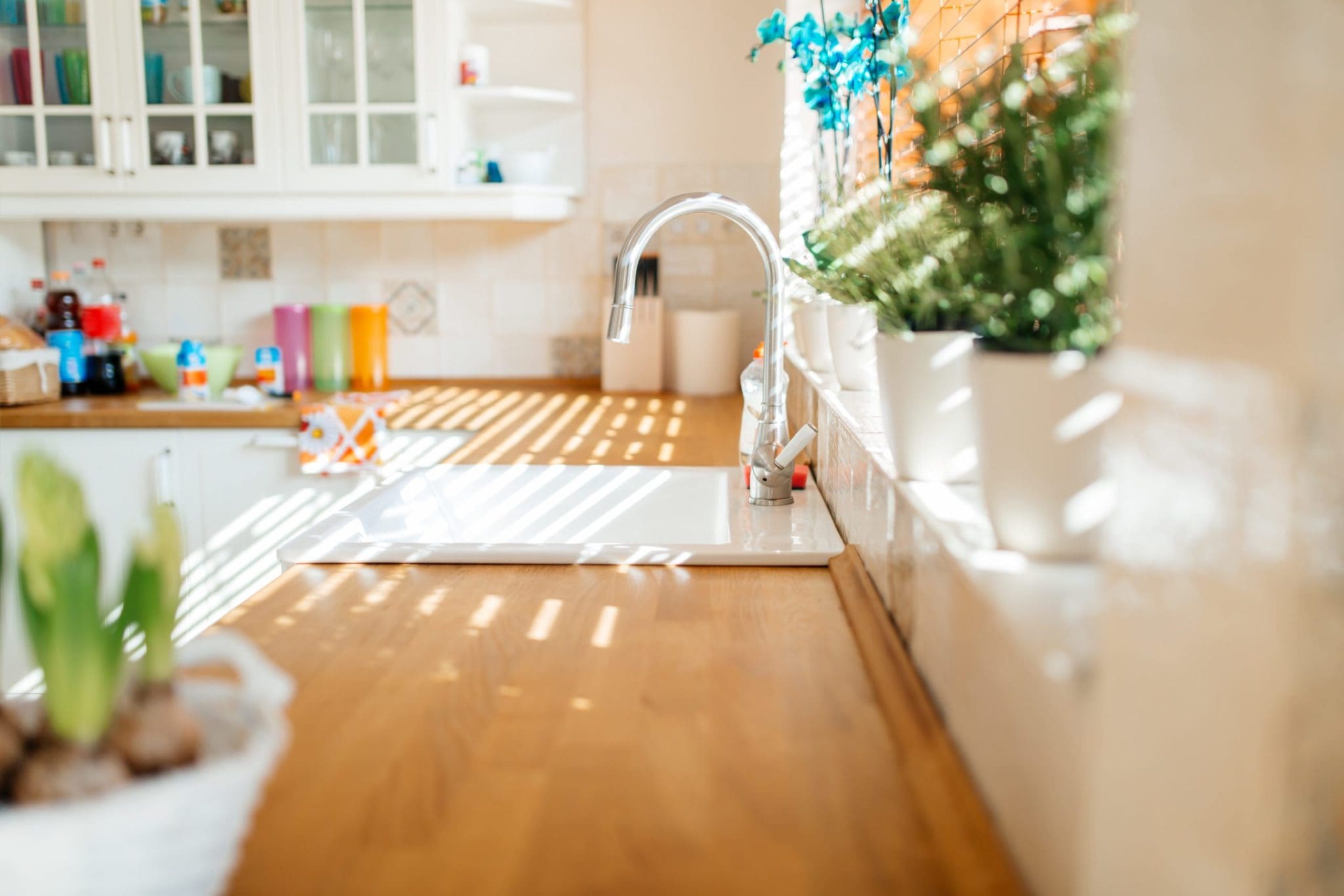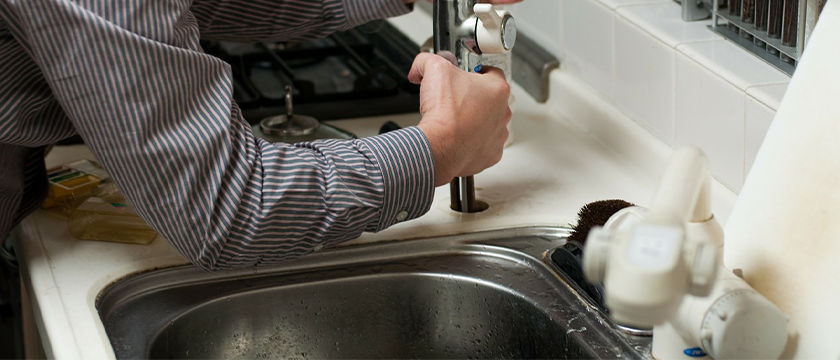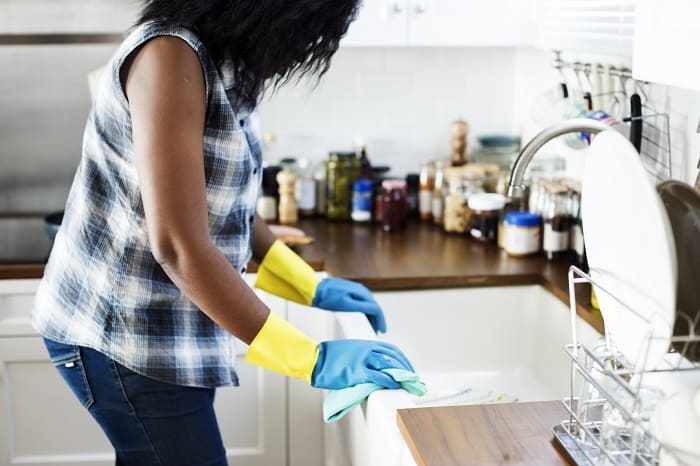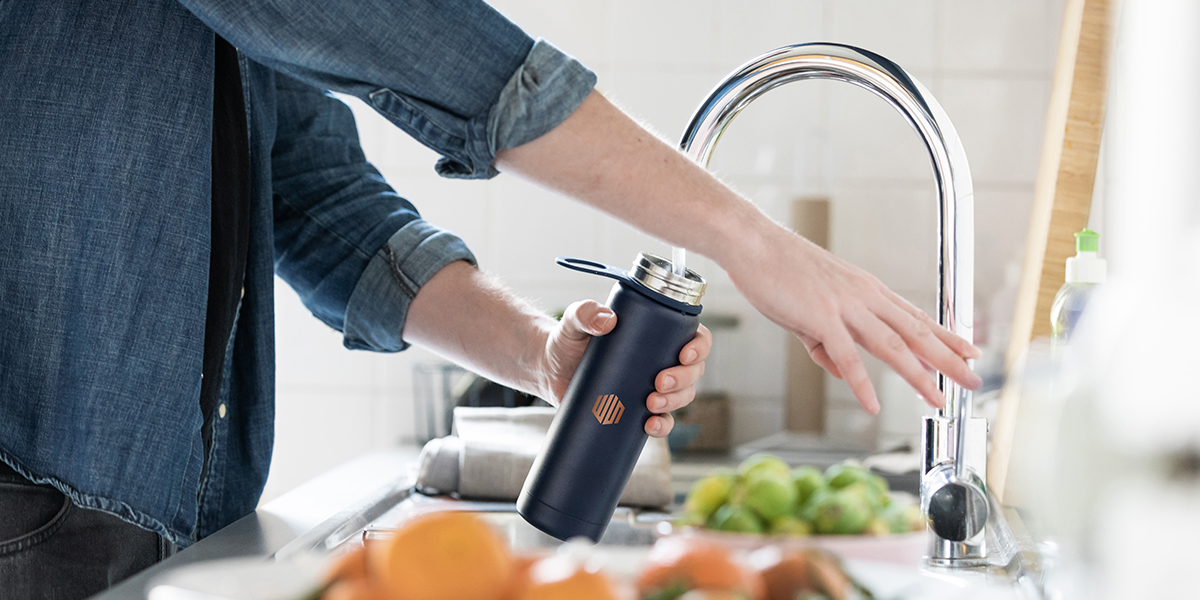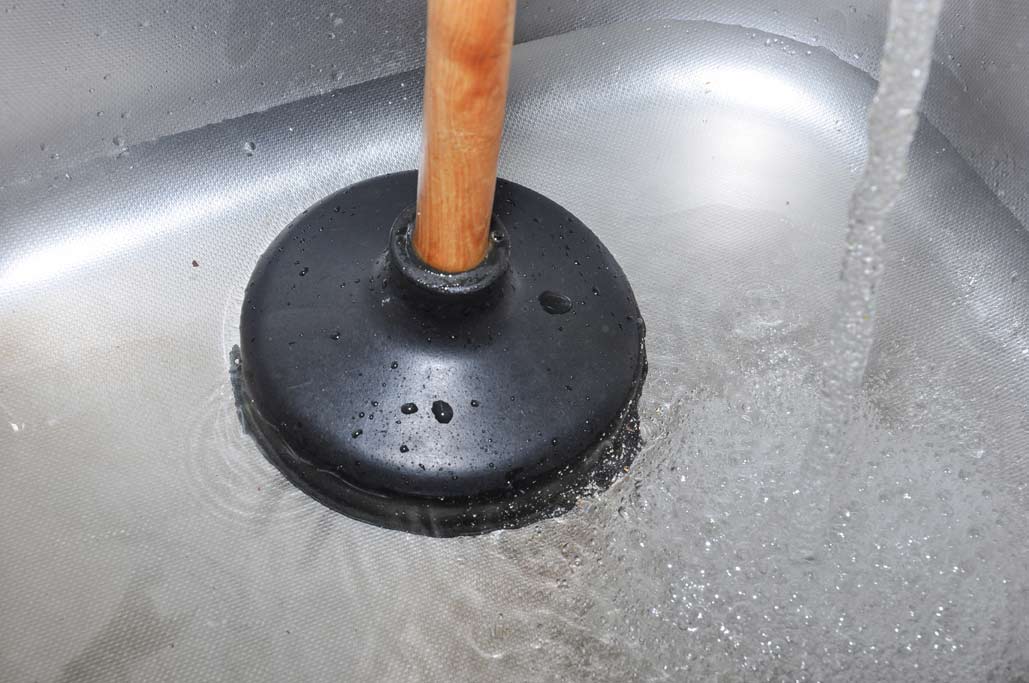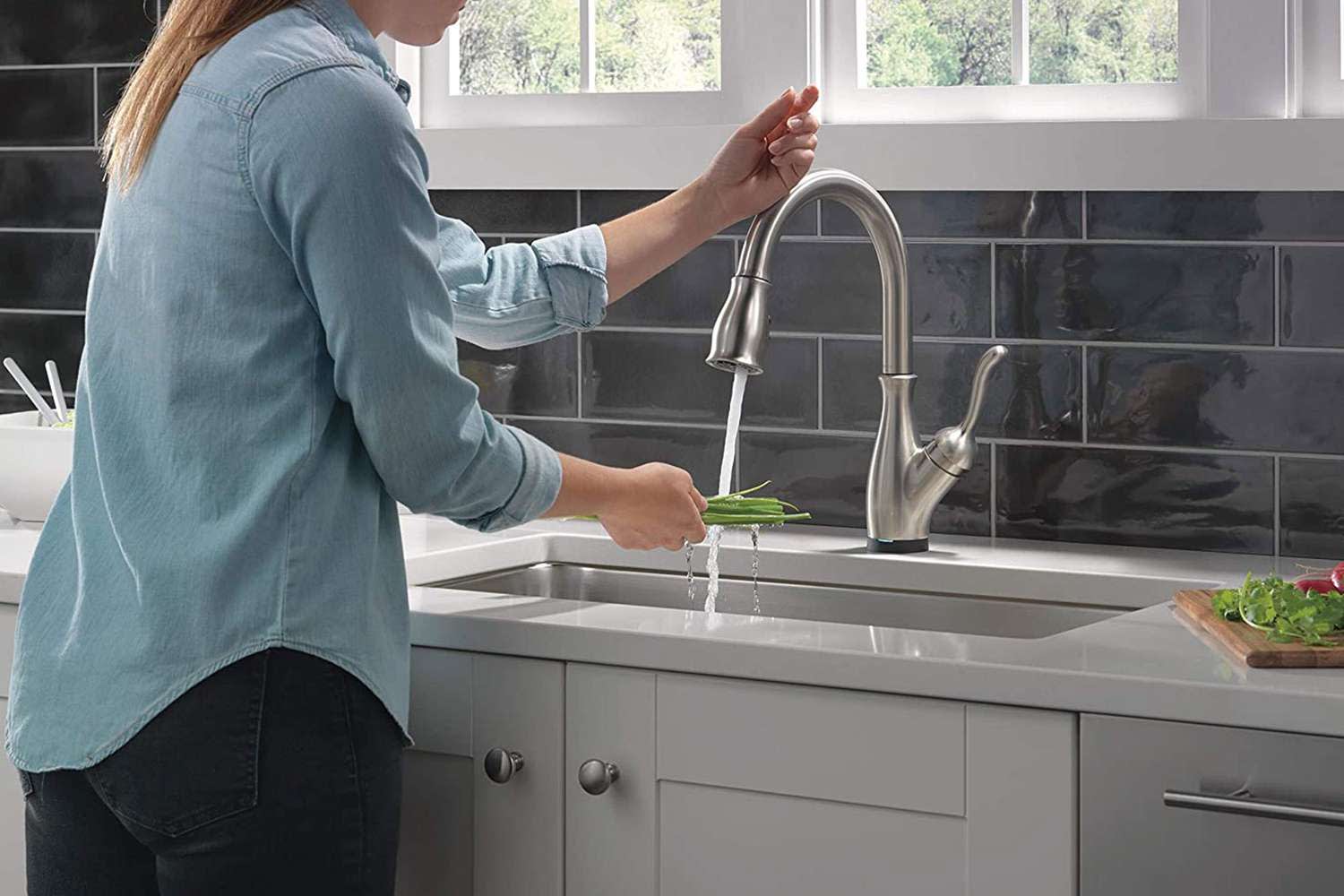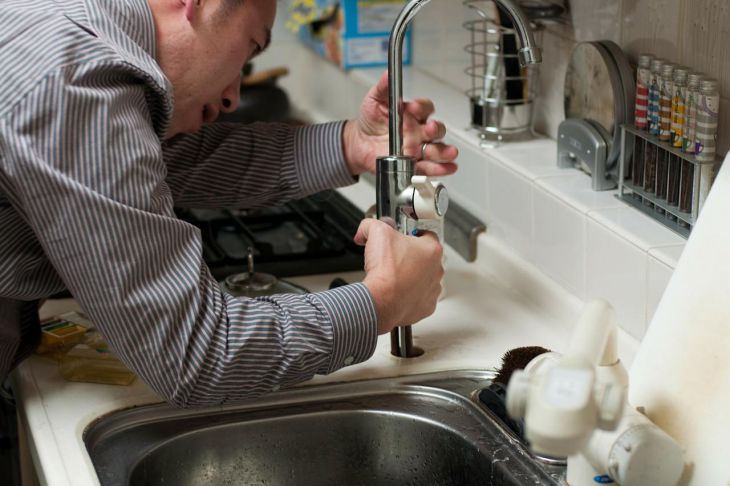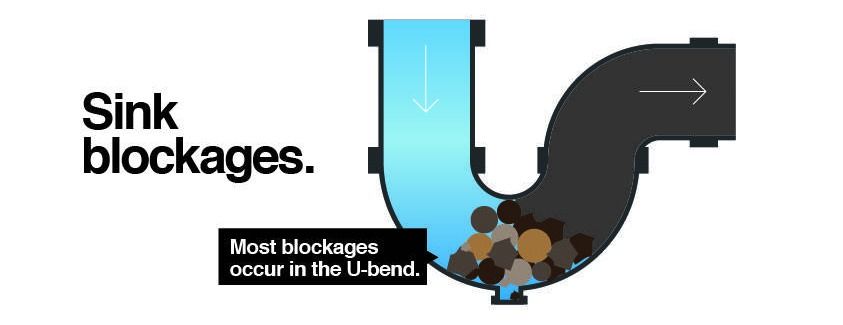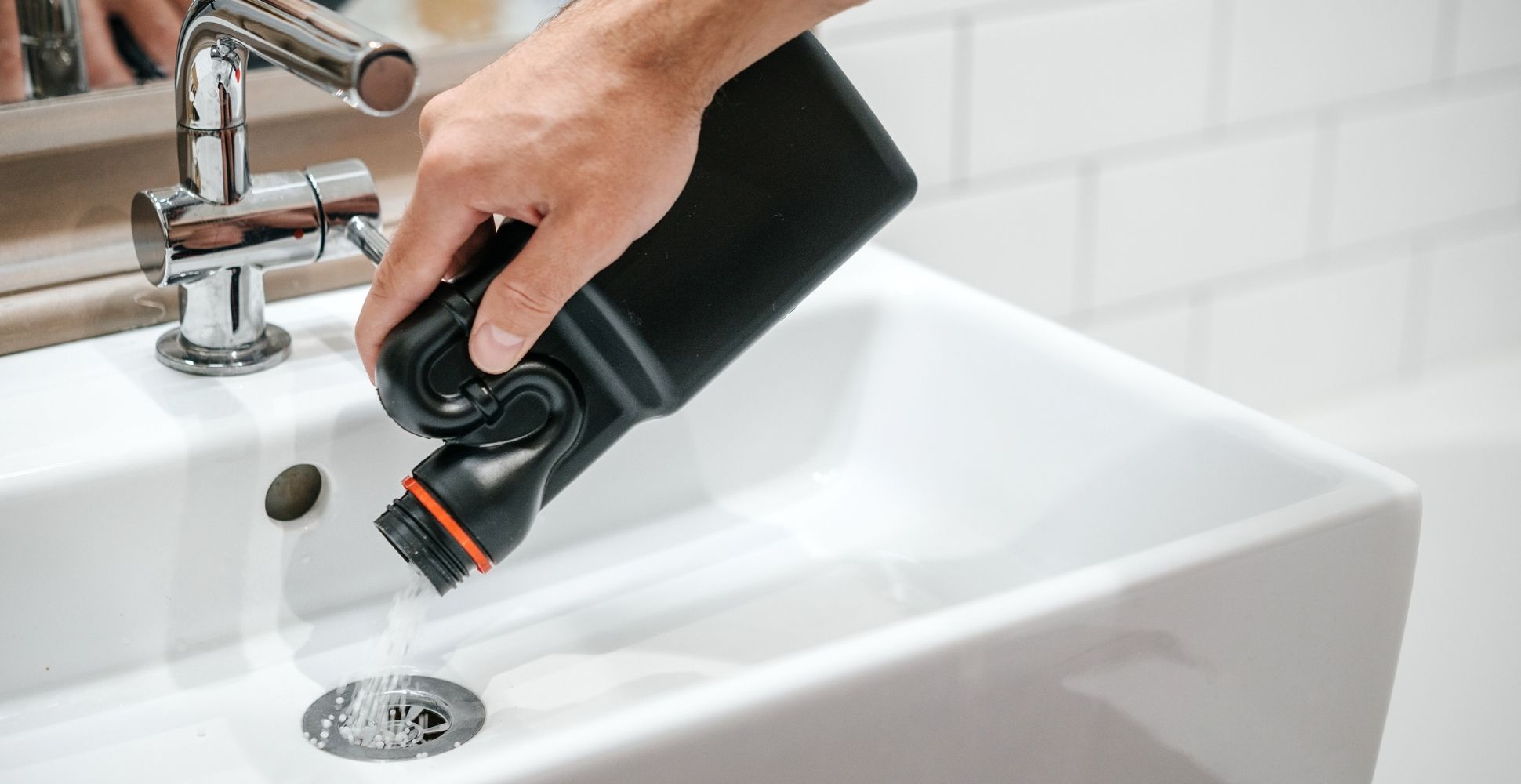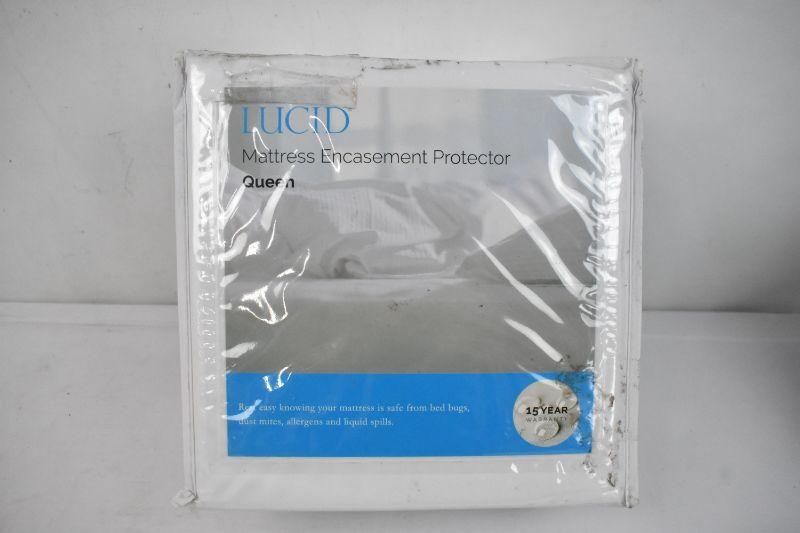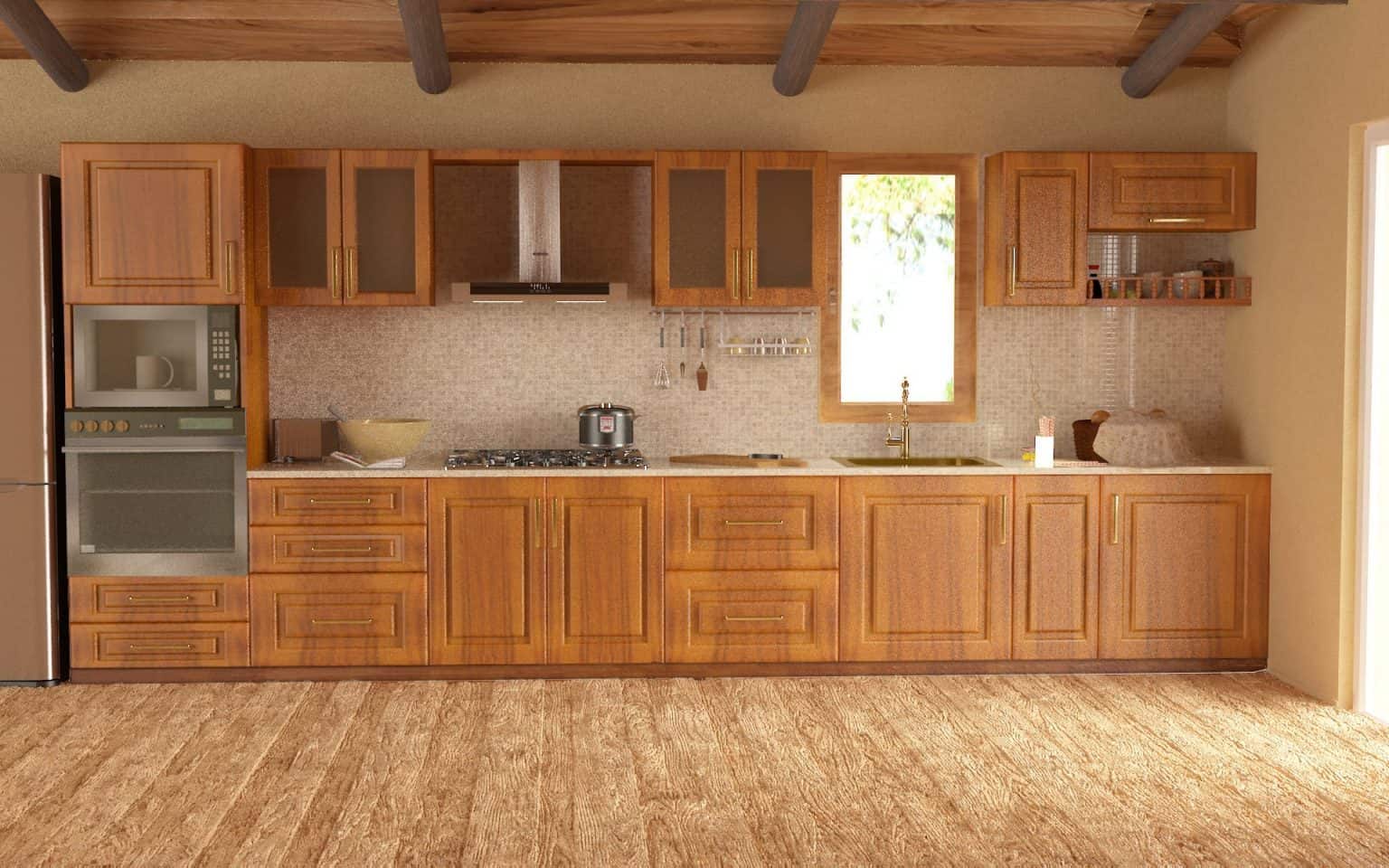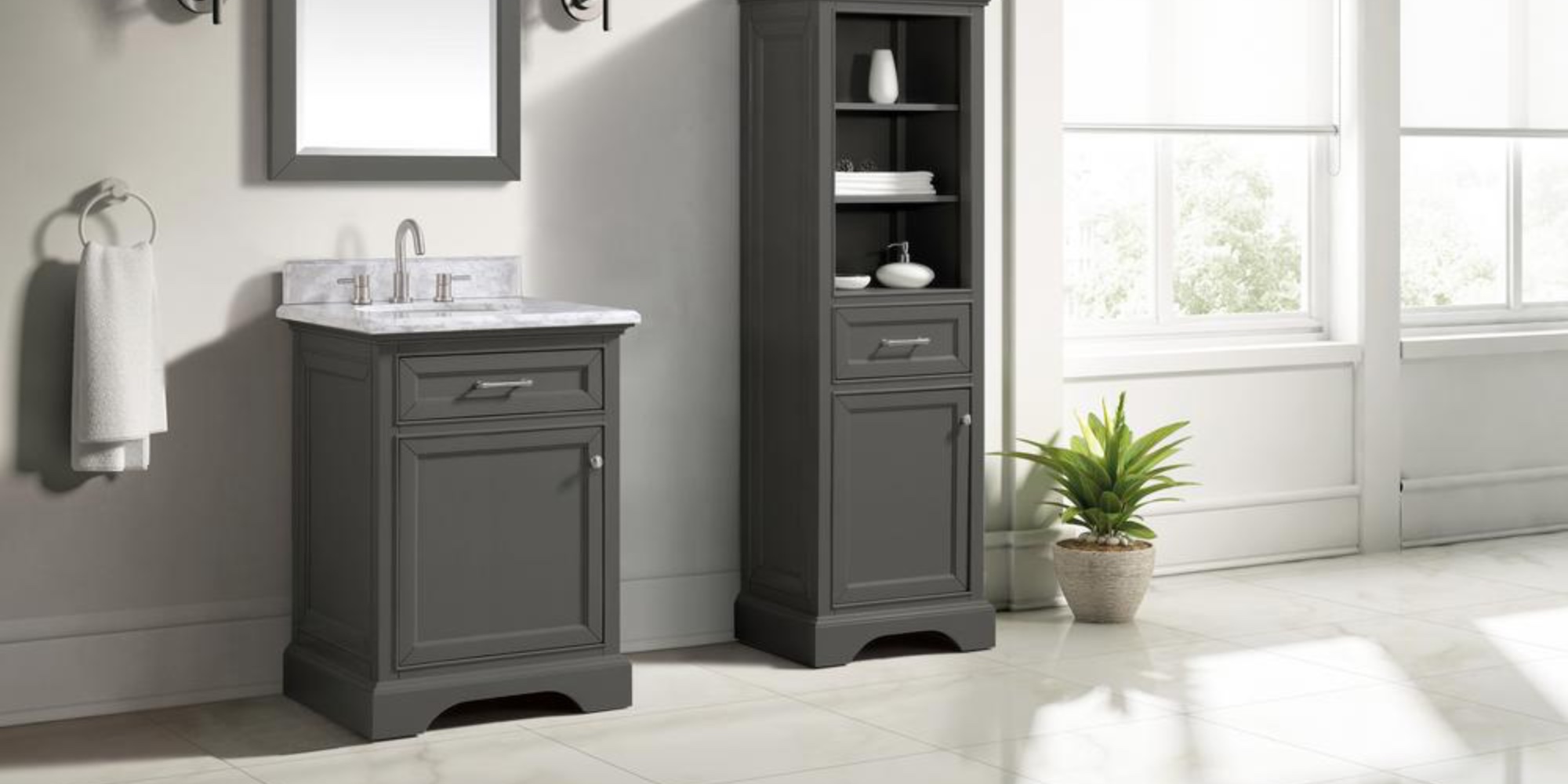Dealing with a clogged kitchen sink can be a frustrating and inconvenient experience. But fear not, there are simple and effective ways to clear a kitchen sink blockage and get your sink back to working like new again. Follow these easy steps to unclog your kitchen sink and say goodbye to standing water and slow draining for good.How to Clear a Kitchen Sink Blockage
Step 1: Assess the severity of the blockage. Is the sink completely clogged or is the water draining slowly? This will determine the best course of action. Step 2: Boil a pot of water and carefully pour it down the drain. This can help break up any grease or build-up that may be causing the blockage. Step 3: If the water is still not draining, try using a plunger to dislodge the blockage. Be sure to cover the overflow opening with a wet cloth to create better suction. Step 4: If the plunger doesn't work, it's time to try a drain snake. Insert the snake into the drain and twist it back and forth to break up the blockage. Step 5: If all else fails, it may be time to use a chemical drain cleaner. Be sure to follow the instructions carefully, and use caution when using these products.Clearing a Kitchen Sink Blockage: A Step-by-Step Guide
If you're looking for natural and eco-friendly solutions for clearing a kitchen sink blockage, look no further than your pantry. Here are some DIY methods to try: Baking Soda and Vinegar: Pour a cup of baking soda down the drain, followed by a cup of vinegar. Let it sit for 30 minutes, then flush it with hot water. Salt and Hot Water: Mix 1/2 cup of salt with a pot of hot water and pour it down the drain. Boiling Water and Dish Soap: Pour boiling water down the drain, followed by a few squirts of dish soap. Let it sit for a few minutes before flushing with hot water.DIY Solutions for Clearing a Kitchen Sink Blockage
Here are some helpful tips and tricks to keep in mind when dealing with a kitchen sink blockage: Use a Mesh Strainer: Install a mesh strainer over your sink's drain to catch food debris and prevent it from going down the drain. Flush with Hot Water: To help prevent blockages, run hot water down the drain after each use, as this can help break down any grease or build-up. Avoid Pouring Grease Down the Drain: Grease and oil can solidify and cause blockages, so be sure to dispose of them in the trash instead. Regularly Clean Your Garbage Disposal: If you have a garbage disposal, be sure to clean it regularly by grinding ice cubes and lemon peels to keep it running smoothly.Unclogging Your Kitchen Sink: Tips and Tricks
Understanding the common causes of kitchen sink blockages can help you prevent them in the future. Some common culprits include: Food Debris: Food scraps, especially those high in fat or starch, can easily cause blockages in your kitchen sink. Grease and Oil: As mentioned, pouring grease and oil down the drain can lead to blockages as they solidify and build up over time. Foreign Objects: Accidentally dropping items like utensils, bottle caps, or hair ties down the drain can cause blockages.Common Causes of Kitchen Sink Blockages
Instead of harsh chemicals, you can use natural ingredients to clear a kitchen sink blockage. These not only help unclog the drain, but they are also better for the environment and your pipes. Try using ingredients like baking soda, vinegar, and hot water to effectively break up and flush away blockages.Using Natural Ingredients to Clear a Kitchen Sink Blockage
Having the right tools on hand can make the process of clearing a kitchen sink blockage much easier. Here are some essential tools you may need: Plunger: A plunger can be used to create suction and dislodge blockages in the drain. Drain Snake: A drain snake, also known as a plumber's snake, can be used to physically break up blockages. Chemical Drain Cleaner: For tougher blockages, a chemical drain cleaner can help dissolve and clear the obstruction.Tools You'll Need to Clear a Kitchen Sink Blockage
The best way to deal with a kitchen sink blockage is to prevent it from happening in the first place. Here are some maintenance tips to keep your sink running smoothly: Regularly Clean Your Sink: Be sure to clean your sink regularly to prevent build-up and potential blockages. Use a mixture of hot water and dish soap to scrub away any grease or food debris. Use a Mesh Strainer: As mentioned, a mesh strainer can help catch food debris and prevent it from going down the drain. Flush with Hot Water: Pouring hot water down the drain after each use can help prevent build-up and keep your pipes clear.Preventing Kitchen Sink Blockages: Maintenance Tips
If you've tried all the DIY methods and the blockage still won't budge, it may be time to call in a professional plumber. They have the tools and expertise to effectively and safely remove stubborn blockages without causing damage to your pipes.When to Call a Professional for Kitchen Sink Blockage Removal
When dealing with a kitchen sink blockage, there are some things you should and shouldn't do to avoid making the problem worse. Here are some dos and don'ts to keep in mind: Do: Use natural ingredients and tools to try and clear the blockage before resorting to chemical drain cleaners. Don't: Pour grease, oil, or harsh chemicals down the drain, as they can cause further blockages and damage to your pipes. Do: Regularly clean and maintain your sink to prevent blockages from occurring. Don't: Use your kitchen sink as a garbage disposal, as this can lead to blockages and damage to your pipes. Dealing with a kitchen sink blockage may seem like a daunting task, but with the right tools and techniques, you can easily clear it and prevent it from happening again in the future. Remember to regularly clean and maintain your sink, and use natural ingredients whenever possible to keep your pipes clear and the environment safe. And if all else fails, don't hesitate to call in a professional for assistance.Clearing a Kitchen Sink Blockage: Dos and Don'ts
How to Effectively Clear a Kitchen Sink Blockage
Understanding the Common Causes of Kitchen Sink Blockages
 A clogged kitchen sink can be a major inconvenience in any household. Not only does it disrupt your daily routine, but it can also lead to foul odors and potential damage to your pipes. Before tackling the blockage, it's important to understand the common causes to prevent future occurrences.
Kitchen sink blockages are usually caused by a buildup of food particles, grease, and soap scum. Other possible culprits include foreign objects, such as utensils or small toys, and tree roots infiltrating the pipes.
By identifying the root cause, you can effectively clear the blockage and take necessary steps to prevent it from happening again.
A clogged kitchen sink can be a major inconvenience in any household. Not only does it disrupt your daily routine, but it can also lead to foul odors and potential damage to your pipes. Before tackling the blockage, it's important to understand the common causes to prevent future occurrences.
Kitchen sink blockages are usually caused by a buildup of food particles, grease, and soap scum. Other possible culprits include foreign objects, such as utensils or small toys, and tree roots infiltrating the pipes.
By identifying the root cause, you can effectively clear the blockage and take necessary steps to prevent it from happening again.
Gather the Necessary Tools and Materials
Step-by-Step Guide to Clearing a Kitchen Sink Blockage
 1. Start by removing any visible debris from the sink using your hands or a pair of tongs.
Make sure to dispose of them properly to avoid further blockages.
2. If the blockage is caused by a buildup of food particles, try pouring a mixture of half a cup of baking soda and one cup of vinegar down the drain.
Let it sit for a few minutes before flushing it with hot water. Repeat this process a few times if necessary.
3. If the blockage is deeper in the pipes, use a plunger to try and dislodge it.
Fill the sink with enough water to cover the plunger and use quick, forceful plunges to create suction and push the blockage through.
4. If the plunger doesn't work, use a plumber's snake or drain auger to break up and remove the blockage.
Insert the snake into the drain and turn the handle clockwise to navigate through the pipes. Once you feel resistance, twist and push the snake to break up the blockage.
5. Once the blockage is cleared, run hot water down the drain for a few minutes to flush out any remaining debris.
You can also pour a mixture of hot water and baking soda down the drain to remove any lingering odors.
1. Start by removing any visible debris from the sink using your hands or a pair of tongs.
Make sure to dispose of them properly to avoid further blockages.
2. If the blockage is caused by a buildup of food particles, try pouring a mixture of half a cup of baking soda and one cup of vinegar down the drain.
Let it sit for a few minutes before flushing it with hot water. Repeat this process a few times if necessary.
3. If the blockage is deeper in the pipes, use a plunger to try and dislodge it.
Fill the sink with enough water to cover the plunger and use quick, forceful plunges to create suction and push the blockage through.
4. If the plunger doesn't work, use a plumber's snake or drain auger to break up and remove the blockage.
Insert the snake into the drain and turn the handle clockwise to navigate through the pipes. Once you feel resistance, twist and push the snake to break up the blockage.
5. Once the blockage is cleared, run hot water down the drain for a few minutes to flush out any remaining debris.
You can also pour a mixture of hot water and baking soda down the drain to remove any lingering odors.
Preventing Future Kitchen Sink Blockages
 To prevent future kitchen sink blockages, make sure to properly dispose of food scraps and avoid pouring grease or oil down the drain.
Regularly clean your sink and use a drain cover to catch any large particles that may cause blockages. If you have trees near your property, consider having your pipes professionally inspected and cleared to prevent root infiltration.
To prevent future kitchen sink blockages, make sure to properly dispose of food scraps and avoid pouring grease or oil down the drain.
Regularly clean your sink and use a drain cover to catch any large particles that may cause blockages. If you have trees near your property, consider having your pipes professionally inspected and cleared to prevent root infiltration.
In Conclusion
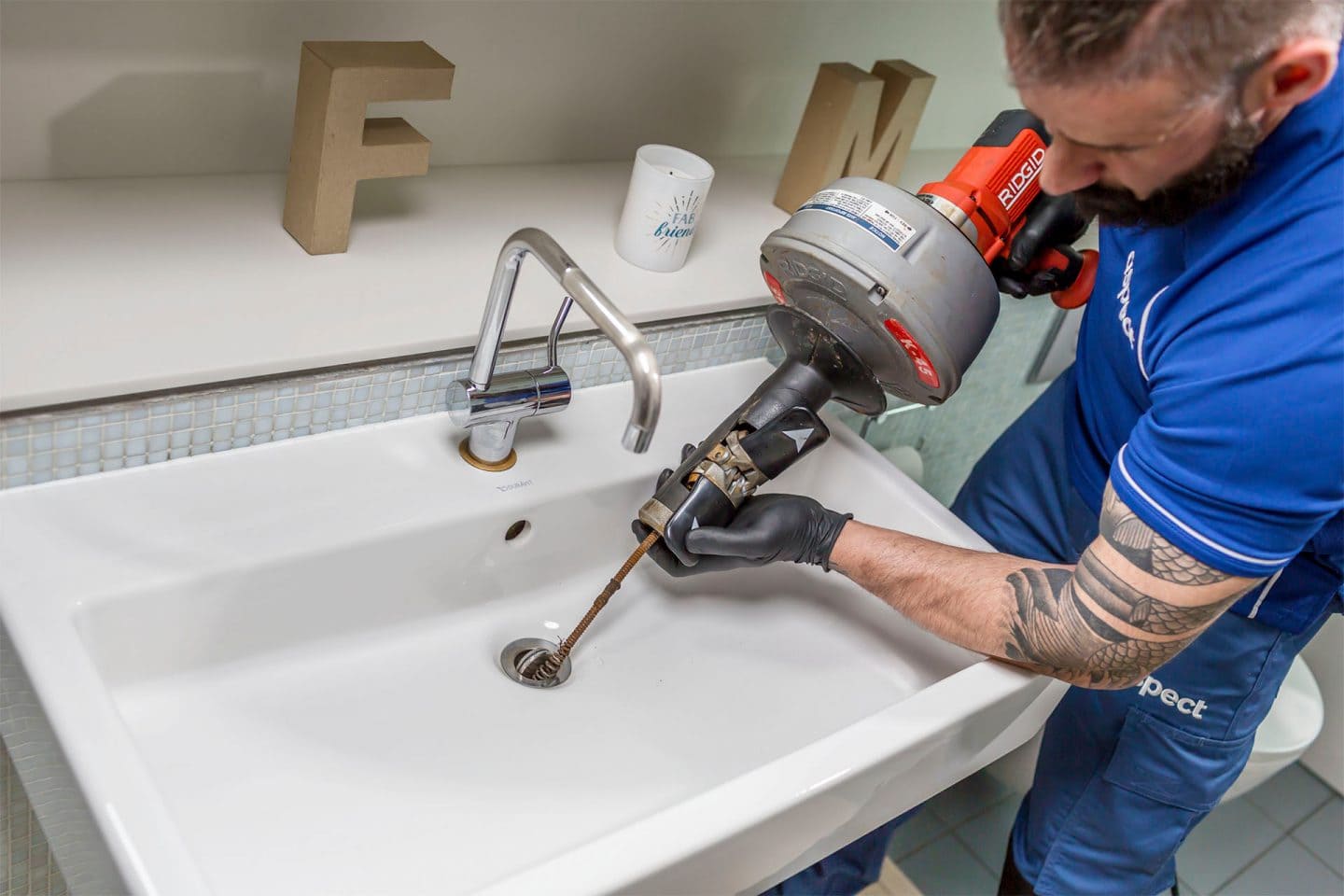 Dealing with a kitchen sink blockage can be a frustrating experience, but by understanding the common causes and following these simple steps, you can effectively clear the blockage and prevent it from happening again.
Remember to always use caution and protective gear when handling chemicals or using tools. If the blockage persists or you're not comfortable tackling it yourself, it's best to call a professional plumber for assistance. A clear and functioning kitchen sink not only makes your daily tasks easier, but it also contributes to a well-designed and efficient household.
Dealing with a kitchen sink blockage can be a frustrating experience, but by understanding the common causes and following these simple steps, you can effectively clear the blockage and prevent it from happening again.
Remember to always use caution and protective gear when handling chemicals or using tools. If the blockage persists or you're not comfortable tackling it yourself, it's best to call a professional plumber for assistance. A clear and functioning kitchen sink not only makes your daily tasks easier, but it also contributes to a well-designed and efficient household.




